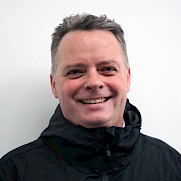Speaker: Professor Jonathan Cullen, Department of Engineering, University of Cambridge.
More details at https://www.csar.org.uk/lectures/2023-2024/tbc_20240429/
Plastics are ubiquitous in modern society. The attractiveness and popularity of plastics stems from their range of properties, their cost-effectiveness and the utility they deliver in society. Plastic production grew rapidly from the 1950s, driven by an ever-increasing range of new polymer materials with exceptional properties—being strong, lightweight, durable, and low-cost—and the many new products on offer. However, rising demand for plastics and the sheer diversity of plastic products available make action to achieve net zero emission targets especially challenging and pressing.
Plastics are hard to live with and hard to live without. The positive social and economic impacts of the petrochemical sector are accompanied by a huge environmental burden. Today, we make about 420 Mt of plastic products, resulting in 1.8 billion tonnes of greenhouse gas (GHG) emissions, or 3.4% of global emissions. By 2060, emissions from the plastics lifecycle are set to more than double, reaching 4.3 billion tonnes of GHG emissions. Climate action requires a radical new relationship between consumers and plastic manufacturers.
What to do about plastics? This talk draws from five years of research at Cambridge, aimed at understanding the GHG impact of plastics across the full lifecycle (production, use and disposal) and exploring all possible options for mitigating the carbon impacts of plastics production.
We need to get an idea of numbers for the refreshments, so if you plan to attend in person, please book at
https://bookwhen.com/csar
In-person tickets are free for individual, family, business/institution/donor, concessionary and school members. You can buy a Pay-as-you-Go ticket for £5 or £3 concessionary (undergraduate or postgraduate students, recent PhD - within 2 years - or those on a low income).
Zoom viewing is free for all - but please come along in person - it's much more friendly!
For in-person attendance:
1) Coffee/tea/biscuits/wine are available from 7 pm outside the Wolfson Theatre, and you can buy self-service dinner before the talk in the main Dining Hall. The Dining hall opens at 17:45, and the CSAR team generally turn up there with the speakers just after 18:00, until about 19:00.
2) Questions from the live audience will be possible, with roving microphones.
3) Usually there's a chance to chat with the speakers and other attendees in Churchill's excellent bar afterwards.
For Zoom participation:
1) Here's the link to join the meeting online using Zoom:
https://us06web.zoom.us/j/84026121458?pwd=JM6aI9oG3Jjsb2rjrlbHntBrG2h6yg.5vbuLK1fBCSkIZqc
Passcode: 803511
2) We will be able to take only written questions from you, via the Zoom Chat facility.
Professor Jonathan Cullen, Department of Engineering, University of Cambridge

Jonathan Cullen is the Professor of Sustainable Engineering at the University of Cambridge and the President of Fitzwilliam College. He leads the Resource Efficiency Collective (www.refficiency.org) and has a reputation for top-down studies of resource systems, bringing skills in developing new metrics to reflect both energy and emissions consequences of materials production. Jonathan currently leads C-THRU: carbon clarity in the global petrochemical supply chain (VKRF), and is a co-investigator on: S2uPPlant: Smart Sustainable Plastic Packaging from Plants (UKRI), TransFIRe: Foundation Industries Research and Innovation Hub (UKRI), UK FIRES: Locating Resource Efficiency at the heart of Future Industrial Strategy (EPSRC), CCG: Climate Compatible Growth (FCDO). He is a Lead Author for the IPCC AR6 Industry Chapter, an Expert Adviser to the IEA Technology Roadmaps, and co-authored the book Sustainable Materials: with both eyes open, which pioneered the concept of material efficiency for energy-intensive industries.

